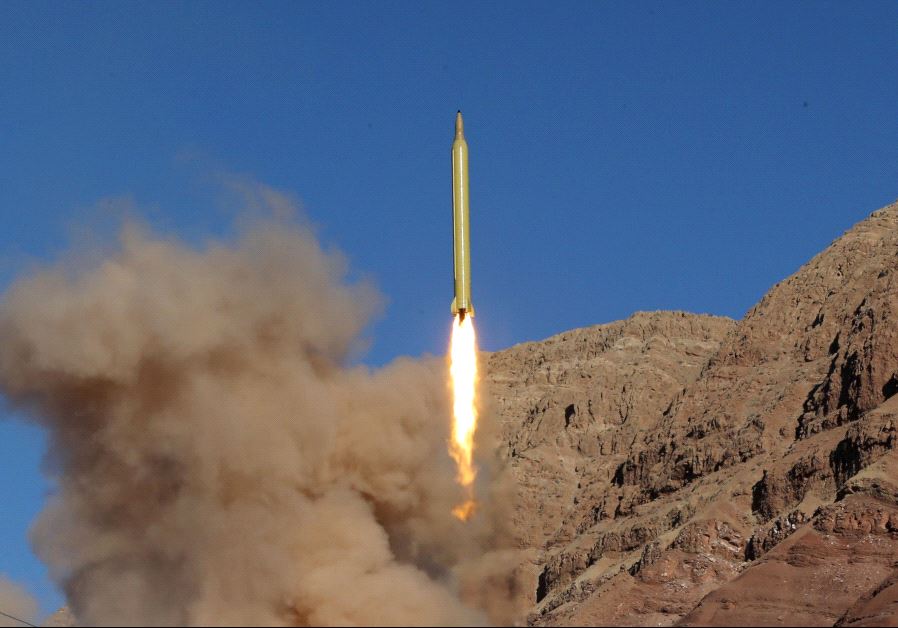Iran on fast forward thanks to nuclear deal
إيران تسير قدماً بكل برامجها العدائية والتسليحية بسبب الاتفاق النووي غير السوي معها
Dr. Majid Rafizadeh/Arab News/March 05/18
The Iranian regime has significantly expanded its investment and spending on terrorist and militia groups. Gen. Joseph Votel, who is in charge of US Central Command, recently told lawmakers on the House Armed Services Committee that Iran has made “an enhanced investment in their proxies and partners.”
There are several factors behind the Iranian regime’s increased capability for financing terrorist and militia groups across the Middle East in the last few years, but the key issue is the Joint Comprehensive Plan of Action (JCPOA), known as the Iran nuclear deal.
When the multiple rounds of United Nations sanctions were in place against the Iranian regime, Tehran was still supporting militias and terrorist groups but at a much slower pace. For example, it took the Iranian regime decades to empower Al-Qaeda to carry out attacks, or to train and create a proxy in Lebanon. But, since the nuclear agreement was reached in 2015, Iran-backed groups have proliferated, are much more empowered and have become major players across the region.
In Iraq, the Iranian regime currently supports at least 40 militia groups under the banner of the Popular Mobilization Forces. Some of these militias are known for committing war crimes, serious violations of international laws, and egregious crimes against humanity. After the nuclear deal, the Iranian leaders have even pushed and succeeded at making the Iraqi government officially recognize these militias and incorporate them into its political and security establishment.
And consider another proxy of Iran, the Houthis. It was after the JCPOA that Iran significantly increased its financial and military assistance to the militia. And it was after the nuclear agreement that the Houthis became empowered and emboldened to such a level that they became capable of destabilizing the country on such a large scale, as well as involving the nation in a bloody war.Since the JCPOA was signed in 2015, Tehran-backed militias have proliferated, are much more empowered and have become major players across the region.
Since the JCPOA, Tehran’s increasing military, intelligence, advisory and economic assistance to Bashar Assad’s regime has also fundamentally strengthened the hold on power of the Syrian regime.
One major byproduct of the nuclear agreement is an economic boost, as Tehran is allowed to reap profits from its increased integration in international markets. Iran’s oil revenues have more than doubled in the last three years, and the trade between the regime’s state-owned firms and European countries has brought Tehran rewards worth billions of dollars.
It is also worth noting that the latest protests in Iran were clear evidence of the fact these increased revenues have not been distributed among the Iranian people. Instead, the budgets for the Islamic Revolutionary Guard Corps, the Quds Force, which is in charge of extraterritorial operations, and their affiliated groups have increased significantly. The IRGC is considered the godfather of many militias and terrorist groups in the region and it was after the nuclear deal that President Hassan Rouhani increased its budget by at least 145 percent.
Another byproduct of the nuclear deal that is helping Tehran increase its support for militias and terrorist groups is the issue of global legitimacy. Enhanced diplomatic ties with the EU, rising trade and business deals, and the JCPOA have brought Tehran out of isolation and considerably enhanced its legitimacy in the international arena.
Global legitimacy is crucial due to the fact that it is providing the Iranian regime with some kind of impunity in violating international laws. Global powers will be less likely to hold the Iranian regime accountable and responsible when it enjoys enhanced legitimacy. This legitimacy has facilitated Tehran’s logistical, military and illegal connections with terrorist groups.
In conclusion, the Iranian regime has increased its support and spending on terrorist militia groups across the region to an unprecedented level. The goals that the Iranian regime wished to accomplish over decades seem to have been achieved in the few years since the nuclear agreement. Thanks to the nuclear deal, Iran is continuing to pursue its regional hegemonic ambitions and achieve its objectives, but at a much faster pace.
*Dr. Majid Rafizadeh is a Harvard-educated Iranian-American political scientist. He is a leading expert on Iran and US foreign policy, a businessman and president of the International American Council. He serves on the boards of the Harvard International Review, the Harvard International Relations Council and the US-Middle East Chamber for Commerce and Business. Twitter: @Dr_Rafizadeh
















